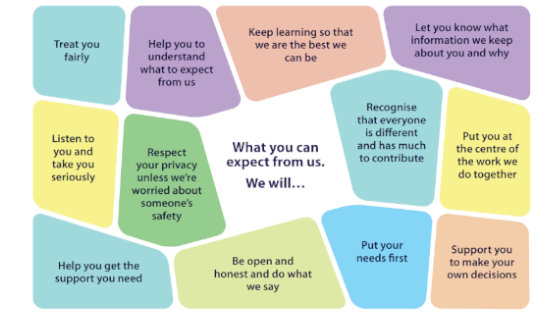The Code of Ethics - Principles
- Equity, Diversity and Inclusion
Members will actively promote equity and diversity and work towards the removal of barriers to personal achievement resulting from prejudice, stereotyping and discrimination. Members will promote access to career development activities and services in a range of ways that are appropriate and ensure inclusion for all.
- Accountability
Members are accountable for their career development activities and services and will submit themselves to whatever scrutiny is appropriate to their role, including the CDI Discipline and Complaints Procedure.
- Autonomy
Members will encourage individual autonomy, enabling clients in making decisions in the individual’s best interests.
- Confidentiality
Members will respect the privacy of individuals. Career development interactions should be conducted in an agreed and suitably private environment. Clients must be informed of the limits of confidentiality and data-sharing at the outset. Disclosure of confidential information should only be made with informed consent or when required by law.
- Competence and Continuous Professional Development
Members will maintain their professional competence, knowledge and skills through participation in continuous professional development informed by reflective practice and relevant national standards. Members will also represent their professional competencies, training and experience accurately and function within the boundaries of their training and expertise.
- Duty of Care to Clients
Members have a moral and legal duty of care and will adopt a client centered approach agreed with the client.
- Impartiality
Members will maintain awareness of any limitations on their impartiality, acknowledge potential impact and take a neutral and non-directive approach when working with clients. Where impartiality is not possible, members will declare this to the client promptly.
- Transparency
Members will agree the purpose and approach to their career development services and activities in an open and transparent manner to gain trust and informed consent.
- Trustworthiness
Members will act in accordance with the trust placed in them and honour agreements and promises.
- Fitness to Practise
Members will embrace reflective practice and maintain their fitness to practise in terms of their personal integrity, physical and mental well-being.



